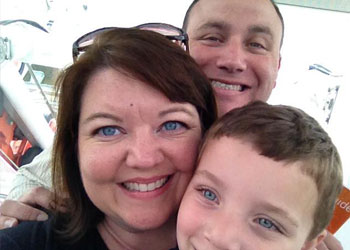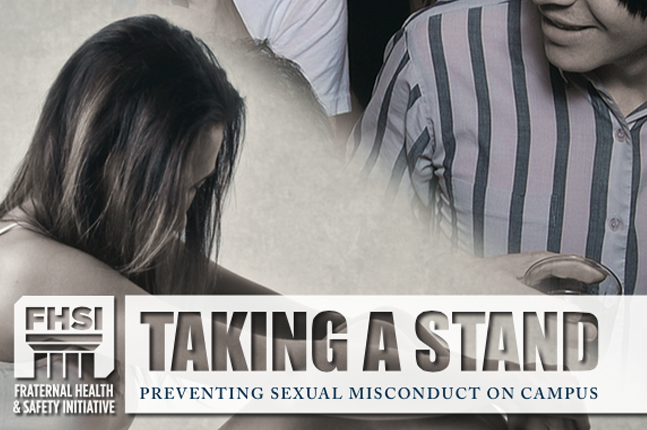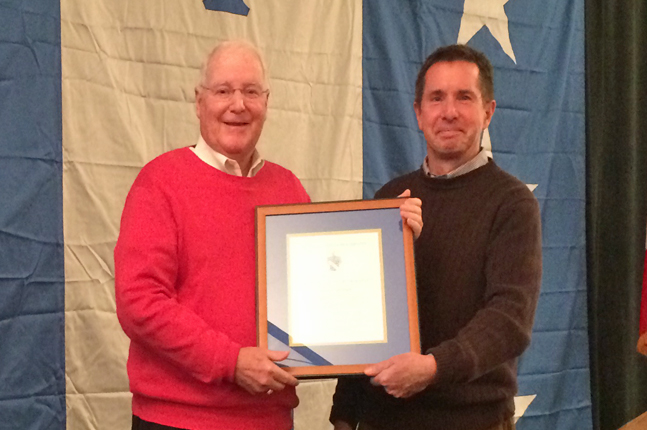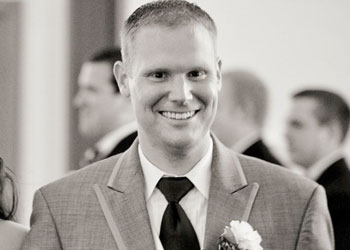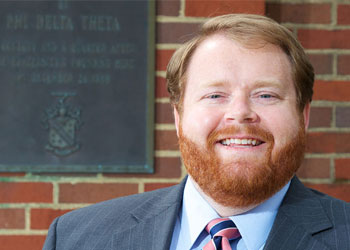Last year, Phi Delta Theta gave our campus partners a virtual microphone to share their wisdom, stories, and experiences with our readers. As a result, these professionals shared valuable information about their knowledge and beliefs about leadership, chapter operations best practices, and to manage time as a student leader, and even some insight into the life of a Greek Advisor. Throughout this week, you’ll hear from Phi Delt volunteers, staff members, and non-Phi administrators and we hope you enjoy what they have to say.
By Robyn Brock
Eight years. That’s how long I have been working in Greek Life at Florida State. Eight years. Where did the time go? How is it that I am still working with fraternities and sororities? I came to FSU for graduate school after serving my sorority as a Leadership Consultant. Fast forward about two and half years to the time when my now mentor, Dr. Adam Goldstein, asked me to work in Greek Life for six months in an interim capacity. After two weeks of thinking about it, I decided to do it. After all, I could do anything for six months, right?
At the end of the six months, I wasn’t ready to be done with Greek Life. Here I am eight years later and still not ready to be done. In our field, we see professionals changing jobs every few years. We often see professionals burn out of working in fraternity and sorority advising. I have colleagues on campus and in the field who tell me that they would never want my job. Well, I’m glad they don’t want my job because as difficult as it is and as hard as we work, I still love what I do…most days.
I certainly do not have all the answers. I can only share with you some of things I have learned—often the hard way—and hope that they offer some insight. Some of the strategies I use to manage expectations, time and my life are as follows:
Redefine burn out for yourself. As new professionals, we often throw ourselves into our work. We immerse ourselves in meetings, events and committees. Part of this stems from an eagerness to learn and prove our worth as professionals. Part of it is that many of us were leaders and overly involved as undergraduates so we continue the same pattern. While our intentions are generally noble, we often fail to recognize that we are investing too much emotionally and physically. Yes, we should give 100%. Yes, we should work hard. No, we should not work to the point that we cannot be effective. As a new professional, my image of burn out was a bitter, grumpy, ineffective person who had worked too long in the profession. Much to my surprise, I have had to redefine this for myself.
My view of burn out now is me after working too many evening events and meetings while also managing a crisis, departmental demands, and student politics. This is not to say that I function as someone who is burned out; it is to clarify that I believe professionals need to recognize and acknowledge that burn out can be temporary and reversed. I have learned and continue to learn how to recognize what the symptoms are for me as I continue working in this field. When I find myself starting to be short tempered, irritated and not remembering why I do what I do, this is when I know I need some time. Call it comp time or balance time or whatever, just learn to recognize when you need it. Which leads me to my next point…
Take care of yourself. This generally means something different for everyone. For me, this means that I spend time with family and friends and also take some alone time. I also love reading, baking, red wine, and shopping. When I can combine any of these with friends and family, then I feel like I hit the jackpot. We often spend so much time investing in others that we forget to invest in ourselves. I try to do something every day to take care of myself. It certainly does not always happen, but I do have a greater awareness of this need.
I also have to own that in our field this is not always possible. As the Panhellenic Recruitment Advisor this past year, I can tell you with certainty that at least during the week of recruitment, I did not take care of myself as well as I could have. I stayed at the hotel most of the week with our recruitment staff and slept nowhere near enough. For me, I knew going into recruitment that I would not have as much time for myself so I made sure I took time for me after recruitment. I do my best to make this a priority before and after work intensive times like Panhellenic recruitment. While I do not always make this happen, I have learned that I need to do this to be effective in my work.
Don’t let your job define your life. Seriously. You are more than the work you do. So am I. Each person is a community member, family member, friend, colleague, and so much more. It is important to have identities outside of your job. Be intentional about cultivating your involvement outside the office.
The reality of our work is that we could be in the office 24 hours a day, 7 days week and there would still be work to do. I think it our responsibility to help students maintain proper perspectives. How many times do we see students needing to meet with us because there is a crisis? Only to learn, when we move our schedules around to meet with them, that the crisis is they can’t find a venue for the chapter philanthropy. If you are nodding in agreement now, then let me ask you: how do you maintain your perspective?
Inevitably, professionals in fraternity and sorority advising will work with students through some type of crisis. I can list a number of crises I have worked with from student deaths to sexual assault allegations to charter suspensions. I believe that if I allowed my job to define me that I would not be able to work through these issues within Greek Life with proper perspective. If your job alone defines who you are, so can the student successes and failures. We cannot be defined as professionals based on the student experience.
As I write this, I think about what I have learned and the people who have impacted my life. I have thought about moments in my career that I will always keep with me—good and bad. At the end of the day, I have found a profession where I continue to grow and learn while working with students, staff, faculty, advisors, headquarters staff and a variety of other constituents to enhance the fraternity experience. As I continue to attempt to take care of myself while not burning out, I will do my best to remember why I do what I do: I believe in the positive potential of the fraternity/sorority experience.
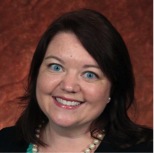
Robyn Brock earned her Bachelor’s degree in Communication from the University of Tennessee and her Master’s degree in Higher Education from Florida State University. She has obviously worked at Florida State for a combined eight years as the Assistant Director and now the Assistant Dean/Director of Greek Life. In her volunteer life, Robyn serves as the Assistant Executive Director for the Southeaster Panhellenic Association and on the Kappa Kappa Gamma NPC delegation. Robyn loves spending time with her husband and their four-year old son, Jackson. She also enjoys drinking red wine, doing a little shopping, traveling with family and friends, and reading a good book.

